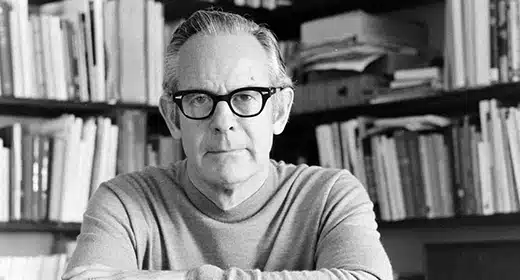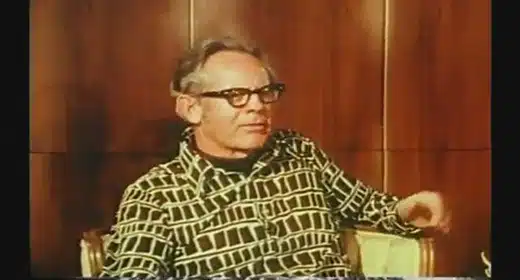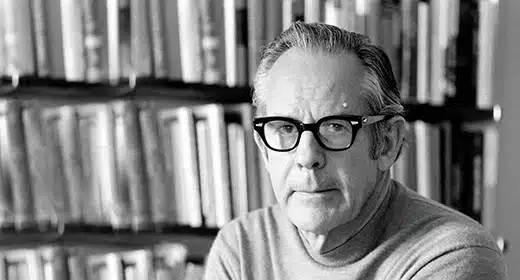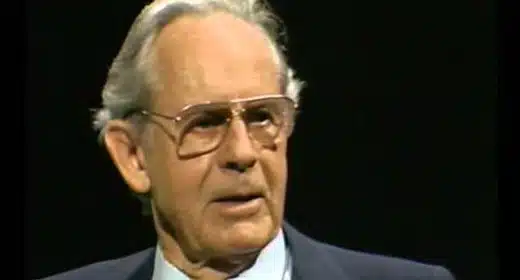Dr. Rollo May (1909-1994) born in 1909 in Ada, Ohio is the best known American existential psychologist. As a clinical psychologist, neo-Freudian psychoanalyst, and existential psychotherapist, he authored some fifteen books. He got his PhD in clinical psychology in 1949, and helped introduce existential psychology to the United States. May was one of the founders and leaders (along with Carl Rogers and Abraham Maslow) of the humanistic psychology movement–the so-called Third Wave in psychology, the first being psychoanalysis, behaviorism being the second– and the pre-eminent exponent of existential therapy in particular. May was influenced by American humanism, and interested in reconciling existential psychology with other philosophies, especially Freud’s.
May identified that individuals develop through stages which do not relate to traditional stages, one following another sequentially. They can occur at different times in different people’s lives. May also had definitive views on sexual behavior. He believed that pornography and sexual commercialization had resulted in a distinct break in society’s views on sex and love. He believed that the emotional bond of love had become segregated from sex, allowing people to easily fulfill their sexual desires without emotional attachment. He thought that this behavior could negatively impact the psychology of society. This apathy could only be fixed, according to May, if society rediscovered the value of caring and loving for one another.
It was his groundbreaking book Existence: A New Dimension in Psychiatry and Psychology (1958), co-edited with Ernest Angel and Henri Ellenberger, that introduced European existential analysis to the American psychotherapy scene. Dr. May is considered to be the “father” of existential psychotherapy.








